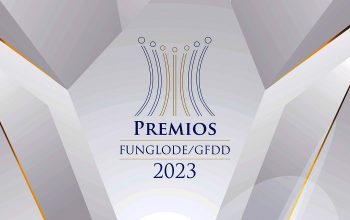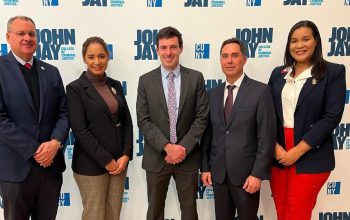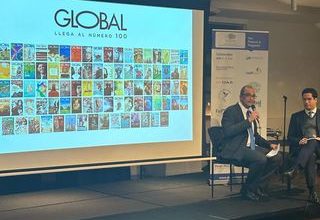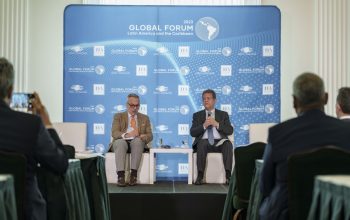news
Strengthening the Power of Film Festivals Networks: DREFF at the 2016 FINCA
June 7, 2016
The Multimedia DeHumALC Institute (IMD) of Argentina, in the framework of the International Environmental Film Festival FINCA, organized last Friday in Buenos Aires the meeting “The Power of Film Festivals Networks” during the launch of the publication “How to organize a film festival with a social commitment, a handbook for human rights and environmental cinematographic events” which is available online for download. The Dominican
Republic Environmental Film Festival (DREFF) participated to recount its six years of experience organizing the only event of its kind in the region.
The Communications Director of DREFF, Miryam López, was present at the panel together with the director of the Portuguese CineEco Seia Festival, Mario Branquinho; the Copia Cero director and consultant for the IMD, Natalia Cortesi; and co-director and programmer of the Festival Internacional de Cine Político de Argentina,
Clara Isasmendi. The event, held in the Library of the French Alliance of Buenos Aires, was a rich exchange of experiences between festivals of very different characteristics and expertise, but all with a strong social commitment to change and with a common goal of raising the consciousness of society.
Natalia Cortesi noted the importance of this handbook and of the exchange of experiences between similar events in a context in which there is no training schools and limited opportunities for learning how to organize a film festival. Meanwhile, Miryam Lopez said that there is no single formula to develop a film festival. “We must constantly keep our eyes and ears wide open and use creativity to meet the needs of the moment and
the new times that change so fast. In this context, the joint work of festivals that have a common goal is of utmost importance. ”
As for Branquinho, he says that “every film festival must maintain its own identity” and mentioned that an event of these characteristics has a great impact on society by implementing actions, workshops and community-integrating activities.
The Handbook
Since 1997,
the IMD has been dedicated to promoting an engaged cinema and contributing to social change, according to the organizers. “Many were the successes and mistakes capitalized on through time by sharing these experiences with other festival organizers that make up the two international networks, the Green Film Network (GFN) and the Human Rights Film Network (HRFN), as well as locally, the Red Argentina de Festivales y Muestras Audiovisuales (RAFMA) “. Given the needs and
challenges facing festivals and social commitment, the IMD with the support of the HRFN and the Dutch foundation Movies That Matter, decided to translate and adapt two manuals previously carried out by members of the HRFN from the Latin American perspective, as well as adding content relating to the experiences of the Festival Internacional de Cine Ambiental (FINCA) and the Festival Internacional de Cine de Derechos Humanos (FICDH). As contribution to the publication, the executive director
of DREFF and Global Foundation for Democracy and Development, Natasha Despotovic, wrote the case study “Dominican Republic Environmental Film Festival: The Path to Sinergy”.
Despotovic highlights here the enormous power of networks. “Empowering others is the most important thing. How? By inspiring them with your own example and exposing them to experiences with others who can inspire them. An environmental film festival can and should do
that. It’s not going to solve every problem, that’s true. Sometimes we get discouraged because there’s so much to do and every day we hear about new challenges. Nonetheless, the power of networks, of contacts, and of inspiration lies precisely in the fact that they produce unexpected exponential growth whose impact no one can control or even predict.”
To read the full article click here
To download the handbook clic here.
Más información:
www.imd.org.ar
http://www.imd.org.ar/?nota=379
www.dreff.org






